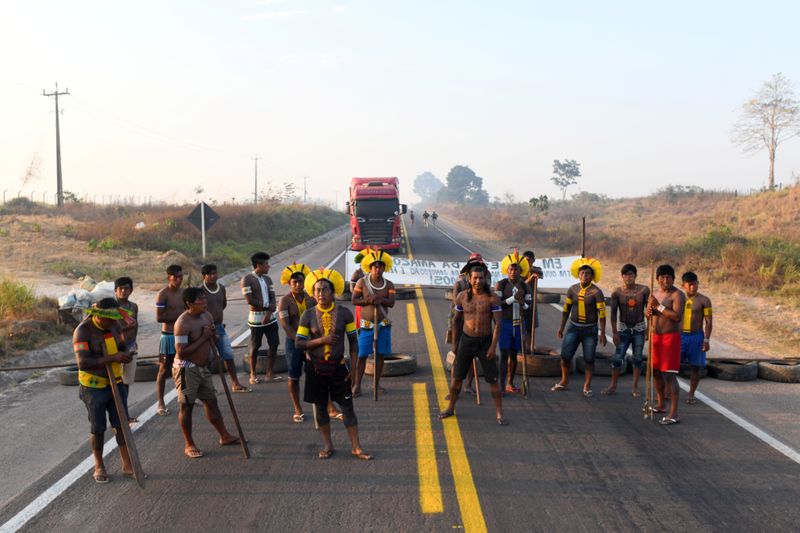By Lucas Landau
NOVO PROGRESSO, Brazil (Reuters) - A Brazilian federal judge on Monday ordered protesters to clear the BR-163 highway, a main route for exporting grains from Mato Grosso state to northern ports, according to a copy of the ruling seen by Reuters.
Members of the Kayapó indigenous tribe had blocked the route in center-west Brazil on Monday, protesting against a lack of government protection from the coronavirus pandemic that has killed several of their elders.
Kayapó wearing warrior body paint and headdresses used tires and wood to block trucks carrying corn on the BR-163 highway, a Reuters witness said.
They were also protesting against the so-called Ferrogrão railway, set to cross part of the Amazon (NASDAQ:AMZN) to connect grain-producing Mato Grosso state to river ports for soy and corn.
Brazil's highway police recommended that grain trucks heading to Miritituba port in Pará state on the Tapajós River pause their journey because of the demonstrations.
"The recommendation is that trucks wait in Matupá and Guarantã do Norte until the situation is resolved," said Leonardo Ramos, chief of police in the town of Sorriso. He said traffic was backed up Monday morning for about 3 km (1.8 miles) on the key grains transport route due to the protests.
The tribe had not been consulted about the railroad, which the government hopes to license early next year, the protesters said. It will link Sinop in Mato Grosso to the port of Miritituba, providing a more efficient transport route.
The railway will run parallel to the BR-163 highway, which has become an important route for exporting grains to the river ports for transshipment onto larger ships on the Amazon river.
The BR-163 was built in the 1970s and for years was a treacherously muddy road that became impassable in the rainy season, until it was fully paved this year.

The Kayapo, who live on the adjacent Menkragnoti e Baú indigenous reservations, claim the road has brought illness to their villages and are also seeking reparation money.